Well, it’s been quite a while since I last had a chance to blog about progress with the Open Science Training Initiative, so it’s about time I provided you with a bit of an update. Nor have things have been quiet on the open science front – admittedly I have been providing some soundbites over at the News feed of the main OSTI website – but juggling the final months of thesis writing with everything else is making things pretty busy!
So: this month’s update gives you a bit of Lego, a bit of Berlin, some opportunities to get involved with translation and/or education activities and a little glimpse at some upcoming changes to the OSTI website. Read on…
Calling All Linguists!
Currently, the bulk of OSTI teaching materials are only available in English, over at the Open Science Training GitHub repository. However, OSTI was designed for in-person teaching and for adapting local, subject-specific courses to deliver integrated open science training too. English-language versions alone cannot provide for this. Last year, some of the slides made it into Finnish as part of the Finland Open Knowledge Roadshow, care of Joona Lehtomaki and colleagues. I’d love to see a broader range of translations to take things further – some of you may already know about this from our recent discussion on the OKFN Open Science community call the other week.
Realistically, I’m going to need YOUR help in translating OSTI materials into other languages. I’ve already heard from individuals from a variety of countries who would like to translate the resources we have into French, Spanish, Portuguese and Russian – I’d like to add Arabic and German to that list too. If you have language experience and an interest in open science, then I would love to hear from you – feel free to email me via the OSTI “Contact Us” details, or drop me a message in the reply box below. And if your language isn’t listed above but you’d like to be the person to add it to the list and recruit a communtiy of fellow translators, then let me know!
So, a few things you might want to know:
- Before we can start the process of translating OSTI, I’m looking to revise the materials and get them into Markdown or similar;
- Transifex has been suggested to me as one tool to assist with translations. If you know of any others which might be useful, or have any experience (good or bad) of working with Transifex, then leave a message below…
- I’ll also be adding a Translations page to the OSTI website, as a central place for information, and establishing some mailing lists for our volunteer translator team to share their thoughts and ideas and to discuss any obstacles they meet during the translation process;
- Obviously the above will take me a little time, so keep an eye on this blog and the OSTI site for further announcements – if I know you’re interested in being one of our translators, then I can email you once plans are taking shape.
So get in touch now and help to lead OSTI to pastures new!
Learning With Lego
Some of you may recall the “Consequences of (Bad) Communication” workshop which I ran at last year’s SpotOn conference in London, which addressed the issue of science communication through the fabulous medium of Lego. I’ve been absolutely delighted with the response to this one – but then, who doesn’t love Lego (bare feet treading-on-bricks notwithstanding)? I have a suspicion that part of the appeal of Lego-based teaching sessions lies in the happy childhood memories it evokes in so many of us…
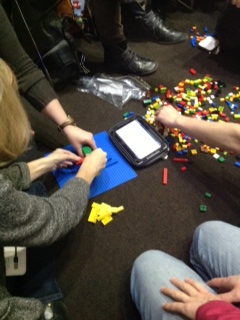
Happiness and Lego at SpotOn 2013 🙂 Photo by Sophie Kay (@StilettoFiend), licensed under a Creative Commons Attribution Licence, CC-BY-4.0
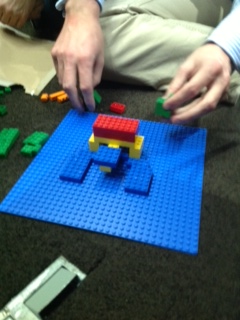
Microscope base in progress at SpotOn 2013. Photo by Sophie Kay (@StilettoFiend), licensed under a Creative Commons Attribution Licence, CC-BY 4.0.
Since I ran the session at SpotOn in November 2013, the session instructions have been downloaded from the OSTI website a fantastic 193 times. Although I can’t be sure which of these were read out of interest and which involved practical use, hopefully this means the ideas surrounding the session are spreading further. Furthermore, the mathematics department at Royal Holloway, University of London, will be adopting our Learning With Lego workshop as of this September. It’ll form a compulsory course for the first-year undergraduates and will take place on a weekly basis. It’s designed to get the students to identify what makes for good communication in a general (for which read, “Lego”) setting and, it is hoped, to pave the way for translating these experiences into improved communication of mathematical concepts during their day-to-day work.
Lego on Mozilla’s “Lo-Fi, No-Fi” Kit
And if you’ve been keeping an eye on that OSTI News page, you’ll also be aware that the Learning With Lego workshop is soon to appear as part of Mozilla’s “Lo-Fi, No-Fi” teaching kit. Established by Kat Braybrooke and colleagues at Mozilla and drawing on input from a variety of educators, the kit provides templates and ideas for teaching the web – and associated skills for using the web – in situations where connectivity might be low or even non-existent. I’m currently revising my original, informal instructions and packaging them for the kit, so I’ll be letting you know when our Lego lesson has officially appeared.
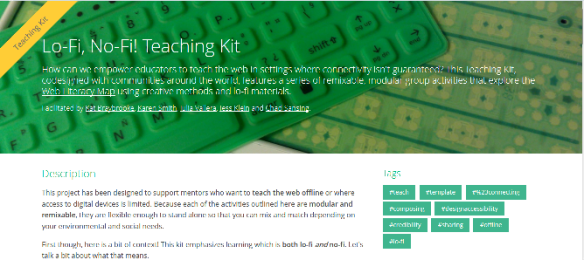
- Homepage of Mozilla’s Lo-Fi, No-Fi Teaching Kit, offering educational sessions ranging from “Code Thief Cards to Teach Javascript Offline” to “Use Puzzles to Teach HTML”.
Open Knowledge Festival 2014: Berlin, July 15th-17th
Well, I did promise a little of Berlin at the start of this post, although it’s a visit to come rather than one that’s already taken place. Thanks to the generosity of the Wikimedia Foundation, I’ll be attending OKFest next month on a Wikimedia Scholarship. While I’m in Berlin, I’ll be looking to find ways of extending and adapting OSTI, as well as starting to build a strong community of educators willing to teach OSTI programmes in their home institutions – if that sounds like your kind of thing, then please come and talk to me at OKFest! I’ll be around for all three days of the festival and will also be hosting a session – I’m co-presenting “Skills and Tools for Web Native Open Science“ with Karthik Ram on the final day of the programme, so I hope to see a mixture of new and familiar faces in the audience… And if you haven’t bought a ticket yet, then sign up here.
Well, it seems as though my “short” update is more than long enough for now. There’ll be more news later this week though, so watch out for a second post before we hit the weekend. You wait ages for a bus eh, and then… 🙂


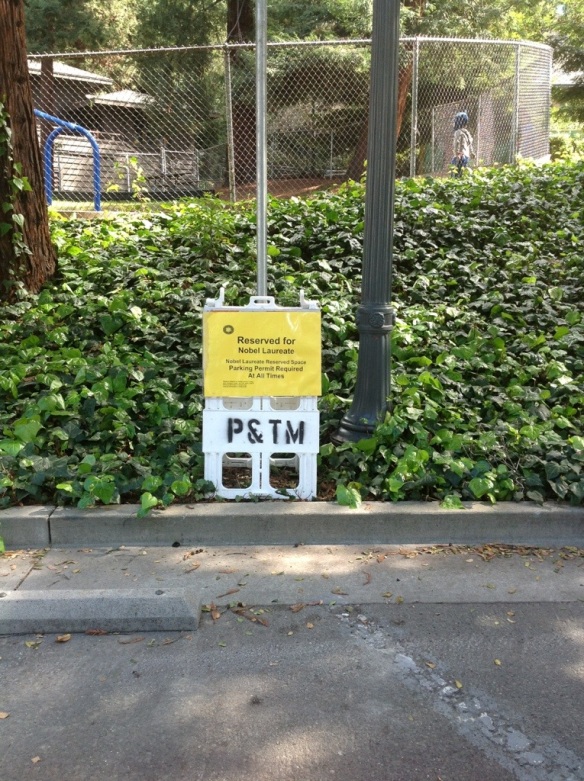
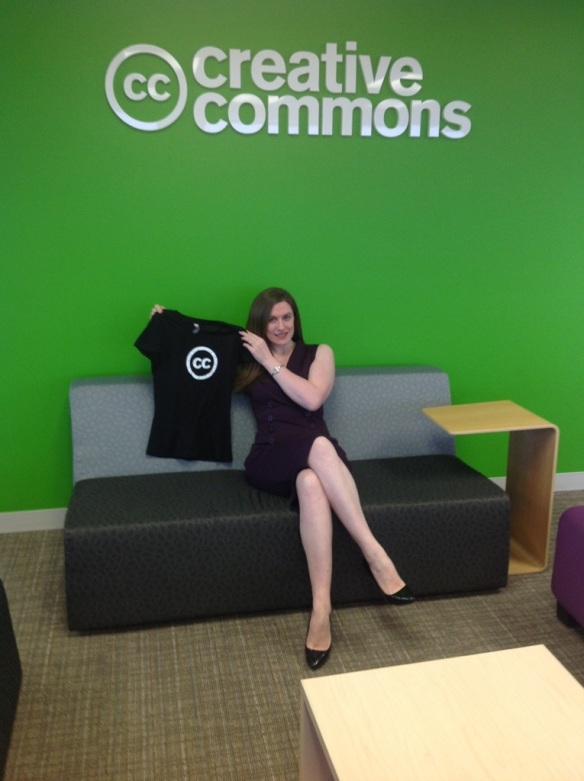

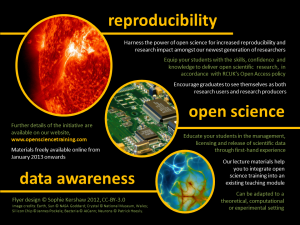 So, what of that website? I should warn you now that the site is live in its basic form, but hasn’t had its official public launch yet (announcement on that will follow when the time comes). You can find it at
So, what of that website? I should warn you now that the site is live in its basic form, but hasn’t had its official public launch yet (announcement on that will follow when the time comes). You can find it at